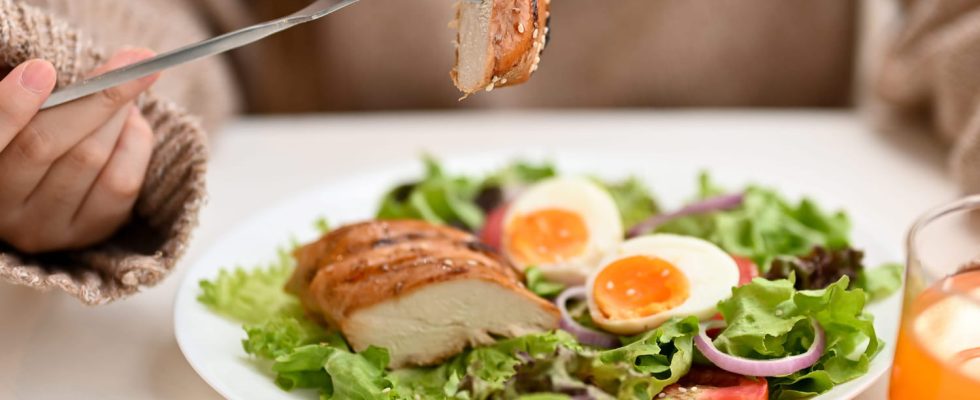From a certain time, the body has difficulty digesting them…
Proteins are essential nutrients for the body. They are found in meats, eggs, fish, seafood, cheeses, dairy products, oilseeds, legumes… Without them, we can’t live. They participate in cell renewal, activate metabolism, preserve muscles, control fat storage… A regular and sufficient intake of protein throughout the day also promotes the feeling of satiety. But since they require a certain amount of digestion time and energy to be assimilated, we cannot eat them at any time…
It all depends on what time you go to bed
Generally speaking, meals taken too late in the evening are not recommended because there is no sufficient digestion time between dinner and bedtime. Especially if the meal is rich in protein. “Between 8 and 9 p.m., our stomach actually becomes more sensitive to proteins.indicates to Business Insider Professor Satchidananda Panda, professor of biology at the Salk Institute for Biological Studies (United States). Why ? “When the sun sets, we are more sedentary: our intestine slows down and our salivary glands also prepare for bed: it is therefore not the right time to try to start digesting food, especially if it is is rich in protein (like meats or cheeses, editor’s note). Basically, food stays in the stomach, causing the body to overproduce stomach acid that the stomach cannot neutralize“. So if you plan to eat a meal rich in protein (a barbecue, a raclette, a meat in sauce or a cheese platter for example), make sure to plan it so that it is not taken too late in the evening, at the risk of promote acid reflux and negatively impact your sleep. Concretely, the biology professor advises eating proteins at least three hours before bedtime, so before 8 p.m. if you go to bed at 11 p.m., before 7:30 p.m. if you go to bed at 10:30 p.m. and so on.
Prefer lean proteins
Always for the sake of digestion, it is preferable to have a light dinner in the evening and to favor so-called “lean” or vegetable proteins. The biologist cites in particular chickpeas, but you can also opt for tofu, tempeh (fermented soy), lentils (green, blond, coral), beans (azuki, white, red), quinoa or split peas. If you want to eat proteins of animal origin, opt for the “leanest” ones which are chicken breast, tuna, white ham, cod, salmon, eggs, cottage cheese or skyr.
